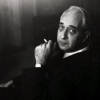Lionel Trilling

Lionel Trilling
Lionel Mordecai Trillingwas an American literary critic, short story writer, essayist, and teacher. He was one of the leading U.S. critics of the twentieth century who traced the contemporary cultural, social, and political implications of literature. With his wife Diana Trilling, whom he married in 1929, he was a member of the New York Intellectuals and contributor to the Partisan Review...
NationalityAmerican
ProfessionCritic
Date of Birth4 July 1905
CountryUnited States of America
Somewhere in the child, somewhere in the adult, there is a hard, irreducible, stubborn core of biological urgency, and biological necessity , and biological reason that culture cannot reach and that reserves the right, which sooner or later it will exercise, to judge the culture and resist and revise it.
It is now life and not art that requires the willing suspension of disbelief.
Reasons for not keeping a notebook: 1) the ambiguity of the reader--it is never quite oneself. 2) I usually hate the sight of my handwriting--it lives too much and I dislike its life--I mean by "lives," of course, betrays too much!
This desire to fashion, to shape, a self and a life has all but gone from a contemporary culture whose emphasis, paradoxically enough, is so much on self.
Immature ists imitate. Mature ists steal.
The poet may be used as a barometer, but let us not forget that he is also part of the weather.
Reasons for not keeping a notebook: 1) the ambiguity of the reader
It is one thing, then, to say, "The Bible contains the religion revealed by God ," and quite another to say, "Whatever is contained in the Bible is religion, and was revealed by God." If the latter be accepted, metaphor and allegory become literal statements and the errors and absurdities of bibliolatry follow.
Youth is a time when we find the books we give up but do not get over.
The immature artist imitates. The mature artist steals.
We live, understandably enough, with the sense of urgency; our clock, like Baudelaire's, has had the hands removed and bears the legend, "It is later than you think." But with us it is always a little too late for mind, yet never too late for honest stupidity; always a little too late for understanding, never too late for righteous, bewildered wrath; always too late for thought, never too late for naïve moralizing. We seem to like to condemn our finest but not our worst qualities by pitting them against the exigency of time.
Even the nonreligious may exercise aesthetic judgment in matters of religion, and indeed our age has given the unbelieving a sophisticated taste in religious literature.
Ideology is not the product of thought; it is the habit or the ritual of showing respect for certain formulas to which, for various reasons having to do with emotional safety, we have very strong ties of whose meaning and consequences in actuality we have no clear understanding.
Unless we insist that politics is imagination and mind, we will learn that imagination and mind are politics, and of a kind we will not like.